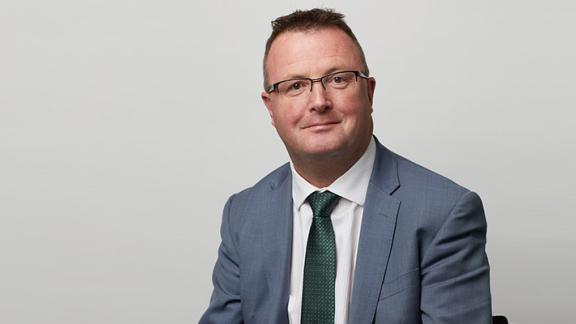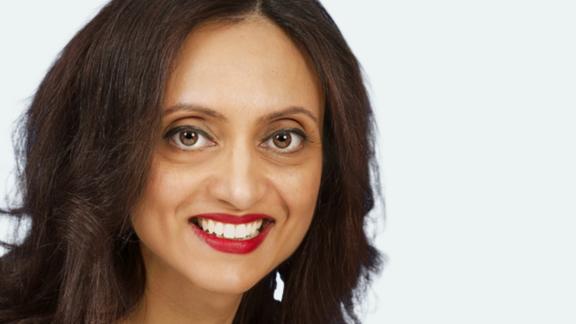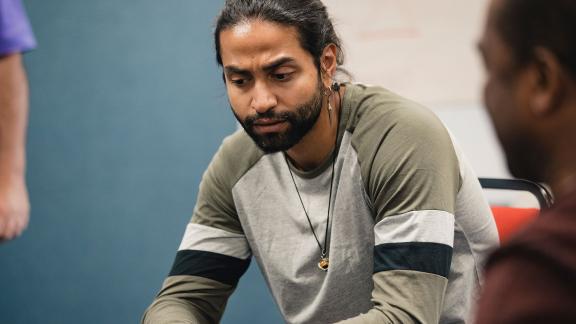A perfect storm: supporting children and young people’s mental health

Sean Duggan, chief executive of the Mental Health Network, shares some of the challenges that children and young people’s mental health services are facing and explains what needs to happen to improve them.
Shockingly, 60 per cent of children and young people (CYP) with a mental disorder are not able to access mental health support. The recent Health and Social Care Committee (HSCC) report on CYP mental health calls for ‘urgent action to prevent mental health services slipping backwards as a result of additional demand created by the pandemic, and the scale of unmet need prior to it.’
Reaching a tipping point in CYP mental health
Our recent report, Reaching the Tipping Point, highlighted the impact of the pandemic on CYP mental health. Our analysis of available data shows a 50 per cent increase in the number of CYP in contact with mental health services, between September 2019 and September 2020.
We do not have enough staff, and the staff we do have are feeling burnt out
We are currently witnessing a perfect storm. Services have worked hard during the pandemic to provide mental health support to CYP, but it is a challenge to meet the huge increase in demand, especially as so many are seriously ill. This isn’t just about mental health services, as it impacts on the whole NHS. We do not have enough staff, and the staff we do have are feeling burnt out, meaning this will impact on the transformation required to improve services
The million-dollar question is how best to address this increase in demand and improve CYP mental health support. In essence it sounds simple: prevent or pick up mental health issues at an early stage and reduce the number of CYP needing specialist services, but putting that into practice is challenging.
Integration must be a priority
Effectively, addressing children and young people’s mental health requires a strategic, integrated approach as so many agencies are involved. Integrated care systems (ICSs) by their very nature are in a good position to help drive this forward, but it needs to be a priority and they need to have the funding to invest.
CYP mental health services have historically been underfunded. While there is additional funding via the NHS Long Term Plan and other funding streams, there was no specific funding announced for mental health in the recent Spending Review. This is very concerning, given the increase in demand during the pandemic.
Early intervention is essential if we want to reduce the number of children and young people requiring specialist mental health services.
To help systems, the Centre for Mental Health and the Children and Young People’s Mental Health Coalition, have published a report outlining the case for investing in mental health services and support for babies, child and young people mental health
Early intervention is essential if we want to reduce the number of children and young people requiring specialist mental health services. The HSCC report calls on the government to shift the focus to prevention and early intervention. We already have effective service models in some areas, but we need additional funding to expand them.
Mental health support teams
The development and roll out of mental health support teams (MHSTs) is a key government initiative that will provide additional workforce capacity and work in schools to help CYP with mild to moderate concerns. However, while there is a commitment to expand access to MHSTs to 400 by April 2023 and ultimately to roll them out nationally, funding beyond 2023/24 is still to be confirmed.
There is an ongoing campaign calling for a network of community hubs, based on the Youth Information, Advice and Counselling Service model. These services do already exist in many areas of England, such as 42nd Street in Manchester. They provide easy to access services for young people up to age 25, which also helps meet the NHS Long Term Plan’s commitment to expand the mental health offer to 0–25-year-olds.
Digital services, such as Kooth and Healios, are already providing very effective mental health services for CYP. The HSSC report recommends to government that digital services, providing both self-help options and digital counselling, should be available for all CYP. However, it also points out that they won’t be appropriate for everyone, so these models need to compliment, rather than replace face-to-face services.
To maximise the resources, we need a joined-up strategic approach and integrated pathways.
Many primary care networks are looking to establish mental health practitioner roles that support CYP, and they also provide other support such as social prescribers, all as part of the Additional Roles Reimbursement Scheme (ARRS) roles. Some PCNs are doing some innovative work to engage with young people and support their mental health.
There is a very good business case for why systems need to invest in children and young people’s mental health. While we largely know what needs to be put into place, there are several obstacles that get in the way. Funding is a key issue, but so is workforce capacity. To maximise the resources, we need a joined-up strategic approach and integrated pathways. Evidence does show that when partners work together, they can improve children’s access to support with their mental health.
Sean Duggan is chief executive of the Mental Health Network, part of the NHS Confederation. You can follow Sean on Twitter @SeanDugganMHN


